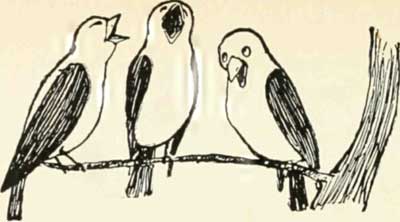Although we have only 26 letters of the alphabet, the English language has 44 speech sounds, including vowels and consonants. These sounds can be categorised a number of different ways. For example:
- we switch our voices on to make all the vowels and some consonants (like “b”, “d” and “g” and “j”), but turn our voices off for some consonants (like “p”, “t”, “k” and “ch”);
- we make some sounds at the front of our mouth, like “p”, “b”, “f”, “v”, “t”, “s” and “d”; but others at the back of our mouth, like “k”, “g”, and “sh”;
- we make some sounds using our mouth only, like “p”, but others using our nose, such as “m” and “n”;
- some sounds can be long using a continuous flow of air, e.g. “s”, “z” and “th”; and others are short, stopping almost as soon as they begin, like “t” and “d”. Yet other sounds are produced by changing the shape of the mouth as we say them, e.g. “w” and” “y”. Particularly tricky sounds include “r” and “l” which are made with very little constriction of the mouth, almost like vowels.
Speech is a complex process. It takes an average of 10,000 hours of practice to do it properly. Not surprisingly, many children – especially young children – are hard to understand. Their speech may be completely unintelligible to strangers.
Sometimes, a child’s unintelligibility is caused by speech motor problems in producing certain sounds, like “th” or “s”. We call these problems “articulation disorders“. A lisp is a common example.
Sometimes, a child’s unintelligibility is caused by the child not knowing the rules we use to acquire sound patterns and the processes underlying such patterns. In other words, the child doesn’t know the rules and processes of the English sound system. We call these patterns and rules “phonological processes“.
For example, children may:
- “front” sounds usually made at the back of the mouth, e.g. saying “tar” instead of “car”;
- “glide” “r” and “l” words into “w”, e.g. “wabbit” and “wittle”;
- leave off the final consonants of some words, e.g. “hou” for “house”;
- leave out unstressed syllables, e.g. “elphant” for “elephant”;
- “stop” sounds that should be long, e.g. “too” for “shoe”, or “dis” for “this”;
- repeat patterns, e.g. “wawa” for “water”;
- reverse the order of sounds, e.g. “pisghetti” for “spaghetti”; and
- “collapse” lots of different sounds into one sound, e.g. saying “d” instead of “b”, “t”, “g” and “k”.
There are lots of other error patterns and processes, and many of them are very common in young children. Usually, these errors are eliminated as a child matures, and we have lots of data about typical development. But sometimes phonological problems persist, and children are diagnosed with a “phonological disorder“.
Articulation disorders and phonological disorders are, together, called “speech sound disorders“. It is not uncommon for children to have both articulation and phonological problems at the same time. Research tells us that:
- more boys than girls have speech sound disorders;
- speech sound disorders tend to run in families;
- children with speech sound disorders are more likely to have language disorders, and are at risk for spelling and reading problems at school; and
- children with speech sound disorders are at a higher risk of bullying.
Some speech sound disorders are caused by a physical or neurological problem. Good speech pathologists always carry out oral motor examinations on children to rule out rare problems like sub-mucous clefts and to identify signs of potential neurological problems requiring further investigation by a doctor and neurologist.
A speech pathologist can help treat speech sound disorders, especially if your child is self-conscious or frustrated about her or his speech, or is being teased or bullied about it.
Related articles:
- The age by which children should have learned their speech sound consonants
- 10 common speech error patterns seen in children of 3-5 years of age
- What’s the difference between speech and language?
- How to identify and treat young children with both speech and language disorders
- Beyond flashcards and glue sticks: what to do if you or your 9-25 year old still has speech sound issues
- “He was such a good baby. Never made a sound!” Late babbling as a red flag for potential speech-language delays
- The dummy debate: do dummies cause speech problems?
- 12 speech-related warning signs that your child might have a hearing problem
- Will tongue-wiggling, blowing bubbles, or making funny faces help my child to speak more clearly?
- How to treat speech sound problems 1: the Cycles Approach
- How to treat speech sound disorders 2: the Complexity Approach
- How to treat speech sound disorders 3: the Contrastive Approach – Minimal and Maximal Pairs
- My pre-schooler stutters and has problems with speech sounds: which one should I treat first?
- The Pesky Lisp Fixer: a new evidence-based approach for kids whose interdental lisps won’t stay fixed!
 Images source: http://tinyurl.com/neoc5by and http://tinyurl.com/cxt6zt5
Images source: http://tinyurl.com/neoc5by and http://tinyurl.com/cxt6zt5

Hi there, I’m David Kinnane.
Principal Speech Pathologist, Banter Speech & Language
Our talented team of certified practising speech pathologists provide unhurried, personalised and evidence-based speech pathology care to children and adults in the Inner West of Sydney and beyond, both in our clinic and via telehealth.
Leave a Reply